China Insight
Top 10 Buzzwords in Chinese Online Media 2019
From blockchain to hardcore, this is an overview of China’s media top buzzwords over the past year.
Published
5 years agoon
By
Jialing Xie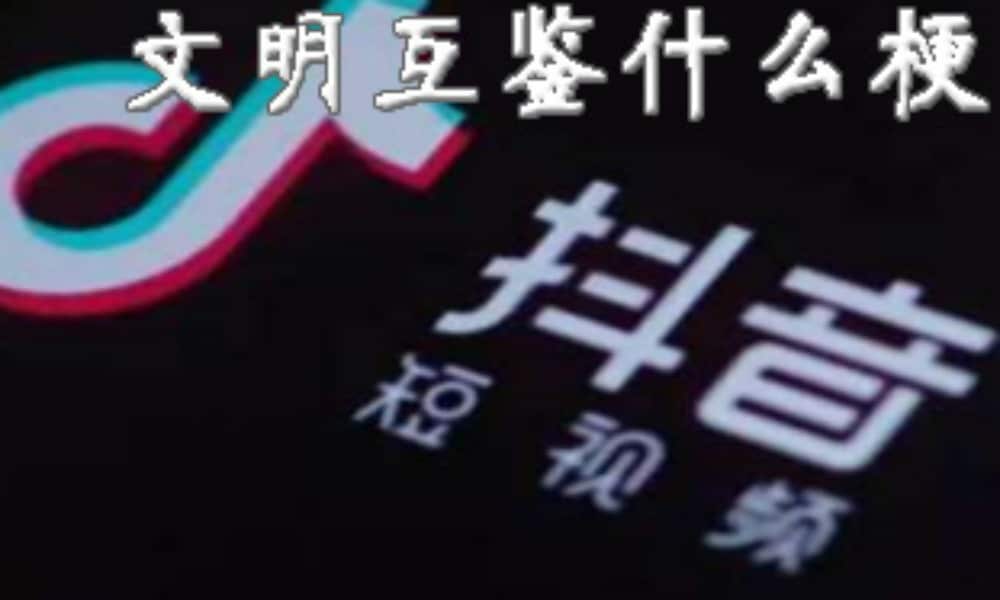
Some of the expressions and idioms that have been buzzing in Chinese media the past year. What’s on Weibo’s Jialing Xie explains.
Last year, we listed China’s “top ten buzzwords” for you (link), giving an overview of some noteworthy expressions on Chinese social media and in the media in 2018. Recently, the chief editor of the magazine Yǎowén Jiáozì (咬文嚼字) has again announced the “top ten buzzwords” in China of the past year.
Yǎowén Jiáozì, which literally means “to pay excessive attention to wording,” is a monthly publication focused on the Chinese language. Chinese (state) media have been widely propagating the magazine’s selection of the top words and terms of the past year in newspapers and on Chinese online media. The ten terms have also become a topic of discussion on Weibo over the past month, with the topic receiving 290 million views.
We’ve listed them for you here:
1. 文明互鉴 (wénmíng hùjiàn): “Mutual Learning”
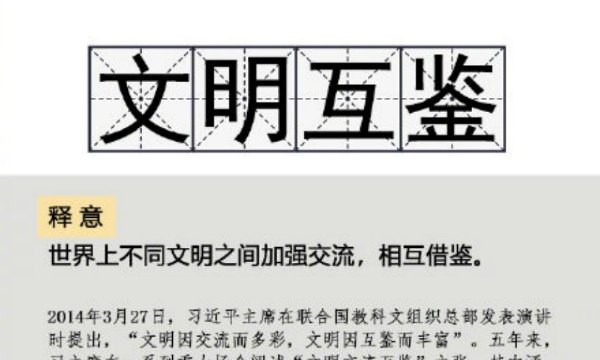
- Literal Meaning: “Mutual learning,” “Exchanges and mutual learning among different cultures and civilizations.”
- Original context: This expression can be traced back to the era around and during the Warring States Period (475-221 BC), a time of division, bloody battles, and political chaos. The demands for solutions brought forth a broad range of philosophies and schools. During this time, Confucianism, Taoism, Legalism, Mohism and many others were developed leading to the phenomenon known as the “Contention of a Hundred Schools of Thought.”
- What does it mean now? In 2014, at the 4th summit of the Conference on Interaction and Confidence Building Measures in Asia (CICA), Chinese President Xi Jinping put forward a major initiative to convene a conference on dialogue between Asian countries followed by an introduction emphasizing how “diversity spurs interaction among civilizations, which promotes mutual learning.” This sentence and expression were later repeated in speeches during various major events. In May 2019, President Xi once again emphasized the idea during the CICA, making the term pop up across Chinese state media again.
2. 区块链 (qū kuài liàn): “Blockchain”
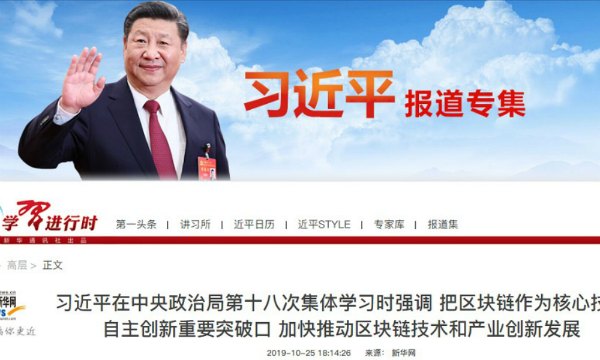
- Literal Meaning: Blockchain Technology
- Context: “Blockchain” is no longer a new concept since it was first introduced to the public around a decade ago. Development of the malleable blockchain technology has become an important trend in China’s tech market through the years.
- What does it mean now? Blockchain was all the buzz in China over the past year. In early 2019, the Cyberspace Administration of China released the Provisions on the Administration of Blockchain Information Services. In October, President Xi singled out blockchain technology as an important breaking point in developing China’s core innovative technology and emphasized the importance of investing and stepping up research on the standardization of blockchain to increase China’s influence and power in the global arena.
3. 硬核 (yìng hé): “Hardcore”

- Literal Meaning: “Hardcore” – 硬 = hard, 核 = core.
- Context: “Hardcore” is known as the abbreviation for Hardcore Punk, a punk rock music genre originated in Southern California during the late 1970s. The term was later used to reference things of a certain level of complexity, such as “hardcore games” (versus casual games). The term started to mean something along the lines of “terrific” (厉害) or “strict”/”rigid” (刚硬) and in Chinese, started being used in expressions such as “Tiger mom” (硬核妈妈) or “Hardcore game players” (硬核玩家).
- What does it mean now? As the Chinese science fiction blockbuster The Wandering Earth (流浪地球) was categorized as ‘hardcore science fiction’ (硬核科幻), the term ‘hardcore’ resurfaced as a popular word often popping up in (online) conversations.
4. 融梗 (róng gěng): “Mixing up ideas”
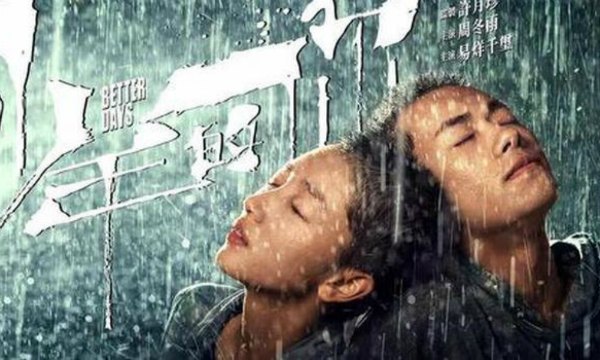
- Literal Meaning: “Integrating other people’s ideas into one’s own work” or “integrating punchlines,” “mixing up plots.”
- Context: Over the past two decades, many literary works, including a few by prestigious Chinese writers, have been suspected of plagiarism and triggered heated discussions online — when it comes to drawing inspiration from other art and literary creations, where is the boundary between artistic freedom and plagiarism?
- What does it mean now? Soon after the Chinese movie Better Days (少年的你) came out in October (read more here), the writer of the original novel was accused of plagiarizing parts of Japanese mystery writer Keigo Higashino’s work. Many netizens argued that in the field of online literature, borrowing ideas from others (融梗) is ubiquitous and does not necessarily equate plagiarism because the act (融梗) itself requires original work and creativity. From October to now, the term has become a recurring topic in Chinese media.
5. “XX 千万条,XX 第一条” (XX qiān wàn tiáo, XX dì yī tiáo): “Out of millions of things,..is the first one”

- Literal Meaning: “Out of ten million things,.. xxx comes first as the rule of thumb.”
- Context: List thinking is prevailing in China; from codes and regulations enacted by the government and laid down by companies, to the way teachers outline their lectures, the usage of “articles” (sometimes used as ‘rules’) or “items” (条) to organize ideas and outline objectives is commonly seen in daily life.
- What does it mean now? This phrase caught people’s attention after appearing in the aforementioned science fiction film The Wandering Earth, where a robot voice reminds a driver of traffic safety in a noteworthy way, saying something along the lines of: “There are thousands of road rules, but safety rules always come first. If you disregard safety, your loved ones will end up in tears.” Despite sounding like a sketch that rhymes poorly in Chinese, the lines stuck around and were later also used by Chinese traffic police across the country. The sentence structure is now also more often applied in various other contexts, for example: “There are thousands of things good for health, but sleep is the most important.”
6. 柠檬精 (níngméng jīng): “Lemon monster”
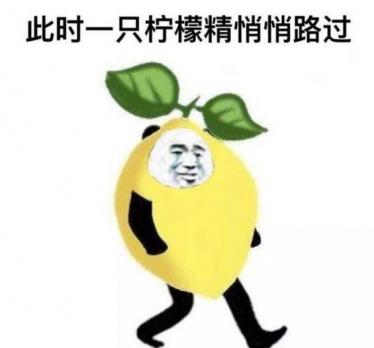
- Literal Meaning: “Lemon mythical spirit” or “Sour lemon goblin”
- Context: In ancient Chinese superstitions, it’s believed that animals and non-living objects may have the potential to grow into something with spiritual and immortal characteristics if meeting certain criteria. One of the criteria is to be around long enough, usually hundreds of years – if not thousands. For instance, in the classical work Journey to the West (西游记), the four main characters except Tang Sanzang are all spiritual beings derived from animal prototypes.
- What does it mean now? Lemon tastes sour (酸), which is often used to describe the feeling of envy or jealousy. When lemon becomes a spiritual being, it basically means the lemon has reached the ultimate stage of being a lemon and maximized its characteristics such as being terribly sour. The phrase is used to deride those who feel envious of others’ possession and achievement. Lately, the word is more often seen in a self deprecating humoristic context. For instance, when someone says “I’m a lemon jing now/I feel sour now( 我柠檬精了/我酸了)”, instead of expressing envy towards others, it’s more about acknowledging others more advantageous position compared to one’s own.
7. The 996 work schedule

- Literal Meaning: 996 working hour system
- Context: 996 is a work schedule commonly practiced by many companies in the internet and tech industry in China. With the 996 schedule, employees are required to work from 9 am to 9 pm, 6 days per week.
- What does it mean now? In April 2019, Jack Ma, the co-founder and former executive chairman of Alibaba Group, commented on 996 during an internal meeting with Alibaba employees. Ma’s comments seemed to justify how companies and employees can both benefit from the work schedule, however, the comments quickly triggered criticism after widely circulating online for allegedly violating of the Labour Law of the People’s Republic of China.
8. “我太难(南)了” (wǒ tài nán le): “Life is so hard for me”

- Literal Meaning: “I’m feeling uneasy” or “life is so hard for me”
- Context: The phrase originated from a 10-second video self-posted by a user on video-sharing site Kuaishou earlier in 2019. As the video begins, the user – an older Chinese guy – says to the camera: “I’m feeling uneasy…” followed by sad music. He then continues to say “Lao tie [bro/guys], (I) have been under a lot of stress lately.” The video, in which the man dramatically drops his head in his hands and seems to cry without tears, quickly went viral. The phrase “I’m feeling uneasy” was quickly adopted and applied in daily conversations.
- What does it mean now? The broad circulation of this phrase on the internet reflects that the uneasy feeling about life is relatable to many people. Acknowledging the stress in a self-deprecating humorous tone is in itself a way of relieving stress. To add a sense of humor to this phrase, many replace the initial character “难” (nán, adj. difficult) with “南” (nán, adj.& n. south), which is believed to be taken from the mahjong tile “南风”(south wind).
9. “我不要你觉得,我要我觉得” (wǒ bùyào nǐ juédé, wǒ yào wǒ juédé): “I don’t want to know what you think, I only care about what I think”
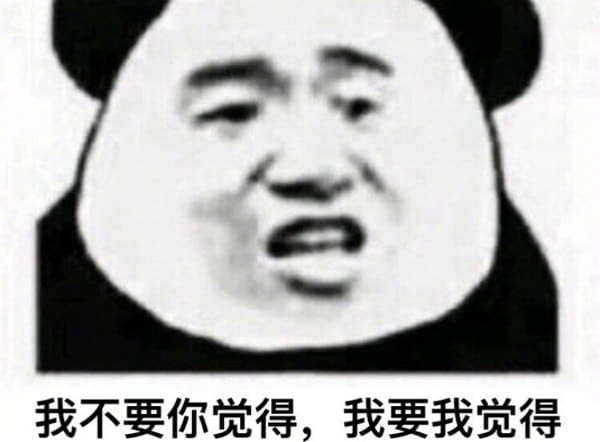
- Literal Meaning: “I don’t want to know what you think, I only care about what I think.”
- Context: The line was taken from Xiaoming Huang, one of the guests in the third season of the entertainment TV show “Chinese Restaurant”, which was broadcasted in the summer of 2019. In the show, Huang, who took the role as the manager of the restaurant, is self-centered, and often disregards the opinions of others in matters such as menu ideas or pricing, showing his blind self-confidence and arrogance. In addition to this line, Huang’s frequently used language includes “There is no need to discuss this matter”, “Listen to me, I have the final say” and so on, and it spread quickly on the internet.
- What does it mean now? The popularity of this line reflects people’s ridicule and resentment against arrogant and dominant personalities.
10. 霸凌主义 (bàlíng zhǔyì): “Bully-ism”
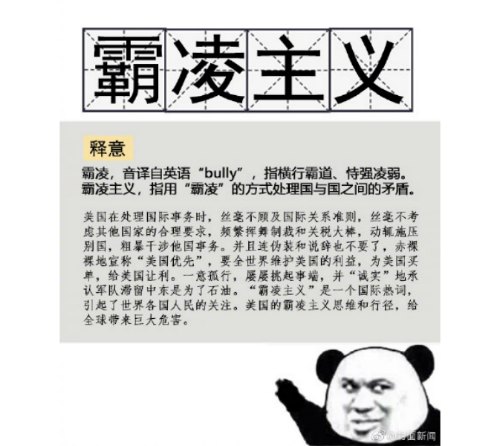
- Literal Meaning: “Bully-ism”
- Context: The word 霸凌 (bàlíng) comes from the English word “bully.” Here, it refers to bullying other countries in the face of conflicts between nations.
- What does it mean now? As the trade conflict between the US and China was ongoing in 2019, many believed that the current government administration of the United States has been handling international affairs in almost a bullying manner. The slogan “America First” is also often perceived as a declaration in front of the entire world that the interests of the United States come first. As a buzzword, “bullyism” has come to be used by Chinese media in the context of international affairs.
By Jialing Xie
Follow @whatsonweibo
Spotted a mistake or want to add something? Please let us know in comments below or email us. First-time commenters, please be patient – we will have to manually approve your comment before it appears.
©2020 Whatsonweibo. All rights reserved. Do not reproduce our content without permission – you can contact us at info@whatsonweibo.com.
Jialing is a Baruch College Business School graduate and a former student at the Beijing University of Technology. She currently works in the US-China business development industry in the San Francisco Bay Area. With a passion for literature and humanity studies, Jialing aims to deepen the general understanding of developments in contemporary China.

China Insight
The Tragic Story of “Fat Cat”: How a Chinese Gamer’s Suicide Went Viral
The story of ‘Fat Cat’ has become a hot topic in China, sparking widespread sympathy and discussions online.
Published
6 months agoon
May 9, 2024
The tragic story behind the recent suicide of a 21-year-old Chinese gamer nicknamed ‘Fat Cat’ has become a major topic of discussion on Chinese social media, touching upon broader societal issues from unfair gender dynamics to businesses taking advantage of grieving internet users.
The story of a 21-year-old Chinese gamer from Hunan who committed suicide has gone completely viral on Weibo and beyond this week, generating many discussions.
In late April of this year, the young man nicknamed ‘Fat Cat’ (胖猫 Pàng Māo, literally fat or chubby cat), tragically ended his life by jumping into the river near the Chongqing Yangtze River Bridge (重庆长江大桥) following a breakup with his girlfriend. By now, the incident has come to be known as the “Fat Cat Jumping Into the River Incident” (胖猫跳江事件).
News of his suicide soon made its rounds on the internet, and some bloggers started looking into what was behind the story. The man’s sister also spoke out through online channels, and numerous chat records between the young man and his girlfriend emerged online.
One aspect of his story that gained traction in early May is the revelation that the man had invested all his resources into the relationship. Allegedly, he made significant financial sacrifices, giving his girlfriend over 510,000 RMB (approximately 71,000 USD) throughout their relationship, in a time frame of two years.
When his girlfriend ended the relationship, despite all of his efforts, he was devastated and took his own life.
The story was picked up by various Chinese media outlets, and prominent social and political commentator Hu Xijin also wrote a post about Fat Cat, stating the sad story had made him tear up.
As the news spread, it sparked a multitude of hashtags on Weibo, with thousands of netizens pouring out their thoughts and emotions in response to the story.
Playing Games for Love
The main part of this story that is triggering online discussions is how ‘Fat Cat,’ a young man who possessed virtually nothing, managed to provide his girlfriend, who was six years older, with such a significant amount of money – and why he was willing to sacrifice so much in order to do so.
The young man reportedly was able to make money by playing video games, specifically by being a so-called ‘booster’ by playing with others and helping them get to a higher level in multiplayer online battle games.
According to his sister, he started working as a ‘professional’ video gamer as a means of generating money to satisfy his girlfriend, who allegedly always demanded more.
He registered a total of 36 accounts to receive orders to play online games, making 20 yuan per game (about $2.80). Because this consumed all of his time, he barely went out anymore and his social life was dead.
In order to save more money, he tried to keep his own expenses as low as possible, and would only get takeout food for himself for no more than 10 yuan ($1,4). His online avatar was an image of a cat saying “I don’t want to eat vegetables, I want to eat McDonald’s.”

The woman in question who he made so many sacrifices for is named Tan Zhu (谭竹), and she soon became the topic of public scrutiny. In one screenshot of a chat conversation between Tan and her boyfriend that leaked online, she claimed she needed money for various things. The two had agreed to get married later in this year.
Despite of this, she still broke up with him, driving him to jump off the bridge after transferring his remaining 66,000 RMB (9135 USD) to Tan Zhu.
As the story fermented online, Tan Zhu also shared her side of the story. She claimed that she had met ‘Fat Cat’ over two years ago through online gaming and had started a long distance relationship with him. They had actually only met up twice before he moved to Chongqing. She emphasized that financial gain was never a motivating factor in their relationship.
Tan additionally asserted that she had previously repaid 130,000 RMB (18,000 USD) to him and that they had reached a settlement agreement shortly before his tragic death.
Ordering Take-Out to Mourn Fat Cat
– “I hope you rest in peace.”
– “Little fat cat, I hope you’ll be less foolish in your next life.”
– “In your next life, love yourself first.”
These are just a few of the messages left by netizens on notes attached to takeout food deliveries near the Chongqing Yangtze River Bridge.

AI-generated image spread on Chinese social media in connection to the event.
As Fat Cat’s story stirred up significant online discussion, with many expressing sympathy for the young man who rarely indulged in spending on food and drinks, some internet users took the step of ordering McDonalds and other food delivery services to the bridge, where he tragically jumped from, in his honor.
This soon snowballed into more people ordering food and drinks to the bridge, resulting in a constant flow of delivery staff and a pile-up of take-out bags.

Delivery food on the bridge, photo via Weibo.
However, as the food delivery efforts picked up pace, it came to light that some of the deliveries ordered and paid for were either empty or contained something different; certain restaurants, aware of the collective effort to honor the young man, deliberately left the food boxes empty or substituted sodas or tea with tap water.

At least five restaurants were caught not delivering the actual orders. Chinese bubble tea shop ChaPanda was exposed for substituting water for milk tea in their cups. On May 3rd, ChaPanda responded that they had fired the responsible employee.
Another store, the Zhu Xiaoxiao Luosifen (朱小小螺蛳粉), responded on that they had temporarily closed the shop in question to deal with the issue. Chinese fast food chain NewYobo (牛约堡) also acknowledged that at least twenty orders they received were incomplete.
Fast food company Wallace (华莱士) responded to the controversy by stating they had dismissed the employees involved. Mixue Ice Cream & Tea (蜜雪冰城) issued an apology and temporarily closed one of their stores implicated in delivering empty orders.
In the midst of all the controversy, Fat Cat’s sister asked internet users to refrain from ordering take-out food as a means of mourning and honoring her brother.
Nevertheless, take-out food and flowers continued to accumulate near the bridge, prompting local authorities to think of ways of how to deal with this unique method of honoring the deceased gamer.
Gamer Boy Meets Girl
On Chinese social media, this story has also become a topic of debate in the context of gender dynamics and social inequality.
There are some male bloggers who are angry with Tan Zhu, suggesting her behaviour is an example of everything that’s supposedly “wrong” with Chinese women in this day and age.
Others place blame on Fat Cat for believing that he could buy love and maintain a relationship through financial means. This irked some feminist bloggers, who see it as a chauvinistic attitude towards women.
A main, recurring idea in these discussions is that young Chinese men such as Fat Cat, who are at the low end of the social ladder, are actually particularly vulnerable in a fiercely competitive society. Here, a gender imbalance and surplus of unmarried men make it easier for women to potentially exploit those desperate for companionship.
The story of Fat Cat brings back memories of ‘Mo Cha Official,’ a not-so-famous blogger who gained posthumous fame in 2021 when details of his unhappy life surfaced online.
Likewise, the tragic tale of WePhone founder Su Xiangmao (苏享茂) resurfaces. In 2017, the 37-year-old IT entrepreneur from Beijing took his own life, leaving behind a note alleging blackmail by his 29-year-old ex-wife, who demanded 10 million RMB (±1.5 million USD) (read story).
Another aspect of this viral story that is mentioned by netizens is how it gained so much attention during the Chinese May holidays, coinciding with the tragic news of the southern China highway collapse in Guangdong. That major incident resulted in the deaths of at least 48 people, and triggered questions over road safety and flawed construction designs. Some speculate that the prominence given to the Fat Cat story on trending topic lists may have been a deliberate attempt to divert attention away from this incident.
‘Fat Cat’ was cremated. His family stated their intention to take necessary legal steps to recover the money from his former girlfriend, but Tan Zhu reportedly already reached an agreement with the father and settled the case. Nevertheless, the case continues to generate discussions online, with some people wondering: “Is it over yet? Can we talk about something different now?”

Fat Cat images projected in Times Square
However, given that images of the ‘Fat Cat’ avatar have even appeared in Times Square in New York by now (Chinese internet users projected it on one of the big LED screens), it’s likely that this story will be remembered and talked about for some time to come.
UPDATE MAY 25
On May 20, local authorities issued a lengthy report to clarify the timeline of events and details surrounding the death of “Fat Cat,” which had attracted significant attention across China.
The report concluded that there was no fraud involved and that “Fat Cat” and his girlfriend were in a genuine relationship. Tan did not deceive “Fat Cat” for money; the transfers were voluntary. Furthermore, Tan returned most of the money to his parents.
The gamer’s sister is reportedly still being investigated for potentially infringing on Tan’s privacy by disclosing numerous private details to the public.
In the end, one thing is clear in this gamer’s tragic story, which is that there are no winners.
By Manya Koetse
– With contributions by Miranda Barnes and Ruixin Zhang
Independently reporting China trends for over a decade. Like what we do? Support us and get the story behind the hashtag by subscribing:
Spotted a mistake or want to add something? Please let us know in comments below or email us. First-time commenters, please be patient – we will have to manually approve your comment before it appears.
©2024 Whatsonweibo. All rights reserved. Do not reproduce our content without permission – you can contact us at info@whatsonweibo.com.
China Brands, Marketing & Consumers
A Brew of Controversy: Lu Xun and LELECHA’s ‘Smoky’ Oolong Tea
Chinese tea brand LELECHA faced backlash for using the iconic literary figure Lu Xun to promote their “Smoky Oolong” milk tea, sparking controversy over the exploitation of his legacy.
Published
6 months agoon
May 3, 2024
It seemed like such a good idea. For this year’s World Book Day, Chinese tea brand LELECHA (乐乐茶) put a spotlight on Lu Xun (鲁迅, 1881-1936), one of the most celebrated Chinese authors the 20th century and turned him into the the ‘brand ambassador’ of their special new “Smoky Oolong” (烟腔乌龙) milk tea.
LELECHA is a Chinese chain specializing in new-style tea beverages, including bubble tea and fruit tea. It debuted in Shanghai in 2016, and since then, it has expanded rapidly, opening dozens of new stores not only in Shanghai but also in other major cities across China.
Starting on April 23, not only did the LELECHA ‘Smoky Oolong” paper cups feature Lu Xun’s portrait, but also other promotional materials by LELECHA, such as menus and paper bags, accompanied by the slogan: “Old Smoky Oolong, New Youth” (“老烟腔,新青年”). The marketing campaign was a joint collaboration between LELECHA and publishing house Yilin Press.

Lu Xun featured on LELECHA products, image via Netease.
The slogan “Old Smoky Oolong, New Youth” is a play on the Chinese magazine ‘New Youth’ or ‘La Jeunesse’ (新青年), the influential literary magazine in which Lu’s famous short story, “Diary of a Madman,” was published in 1918.
The design of the tea featuring Lu Xun’s image, its colors, and painting style also pay homage to the era in which Lu Xun rose to prominence.
Lu Xun (pen name of Zhou Shuren) was a leading figure within China’s May Fourth Movement. The May Fourth Movement (1915-24) is also referred to as the Chinese Enlightenment or the Chinese Renaissance. It was the cultural revolution brought about by the political demonstrations on the fourth of May 1919 when citizens and students in Beijing paraded the streets to protest decisions made at the post-World War I Versailles Conference and called for the destruction of traditional culture[1].
In this historical context, Lu Xun emerged as a significant cultural figure, renowned for his critical and enlightened perspectives on Chinese society.
To this day, Lu Xun remains a highly respected figure. In the post-Mao era, some critics felt that Lu Xun was actually revered a bit too much, and called for efforts to ‘demystify’ him. In 1979, for example, writer Mao Dun called for a halt to the movement to turn Lu Xun into “a god-like figure”[2].
Perhaps LELECHA’s marketing team figured they could not go wrong by creating a milk tea product around China’s beloved Lu Xun. But for various reasons, the marketing campaign backfired, landing LELECHA in hot water. The topic went trending on Chinese social media, where many criticized the tea company.
Commodification of ‘Marxist’ Lu Xun
The first issue with LELECHA’s Lu Xun campaign is a legal one. It seems the tea chain used Lu Xun’s portrait without permission. Zhou Lingfei, Lu Xun’s great-grandson and president of the Lu Xun Cultural Foundation, quickly demanded an end to the unauthorized use of Lu Xun’s image on tea cups and other merchandise. He even hired a law firm to take legal action against the campaign.
Others noted that the image of Lu Xun that was used by LELECHA resembled a famous painting of Lu Xun by Yang Zhiguang (杨之光), potentially also infringing on Yang’s copyright.
But there are more reasons why people online are upset about the Lu Xun x LELECHA marketing campaign. One is how the use of the word “smoky” is seen as disrespectful towards Lu Xun. Lu Xun was known for his heavy smoking, which ultimately contributed to his early death.
It’s also ironic that Lu Xun, widely seen as a Marxist, is being used as a ‘brand ambassador’ for a commercial tea brand. This exploits Lu Xun’s image for profit, turning his legacy into a commodity with the ‘smoky oolong’ tea and related merchandise.
“Such blatant commercialization of Lu Xun, is there no bottom limit anymore?”, one Weibo user wrote. Another person commented: “If Lu Xun were still alive and knew he had become a tool for capitalists to make money, he’d probably scold you in an article. ”
On April 29, LELECHA finally issued an apology to Lu Xun’s relatives and the Lu Xun Cultural Foundation for neglecting the legal aspects of their marketing campaign. They claimed it was meant to promote reading among China’s youth. All Lu Xun materials have now been removed from LELECHA’s stores.

Statement by LELECHA.
On Chinese social media, where the hot tea became a hot potato, opinions on the issue are divided. While many netizens think it is unacceptable to infringe on Lu Xun’s portrait rights like that, there are others who appreciate the merchandise.
The LELECHA controversy is similar to another issue that went trending in late 2023, when the well-known Chinese tea chain HeyTea (喜茶) collaborated with the Jingdezhen Ceramics Museum to release a special ‘Buddha’s Happiness’ (佛喜) latte tea series adorned with Buddha images on the cups, along with other merchandise such as stickers and magnets. The series featured three customized “Buddha’s Happiness” cups modeled on the “Speechless Bodhisattva” (无语菩萨), which soon became popular among netizens.

The HeyTea Buddha latte series, including merchandise, was pulled from shelves just three days after its launch.
However, the ‘Buddha’s Happiness’ success came to an abrupt halt when the Ethnic and Religious Affairs Bureau of Shenzhen intervened, citing regulations that prohibit commercial promotion of religion. HeyTea wasted no time challenging the objections made by the Bureau and promptly removed the tea series and all related merchandise from its stores, just three days after its initial launch.
Following the Happy Buddha and Lu Xun milk tea controversies, Chinese tea brands are bound to be more careful in the future when it comes to their collaborative marketing campaigns and whether or not they’re crossing any boundaries.
Some people couldn’t care less if they don’t launch another campaign at all. One Weibo user wrote: “Every day there’s a new collaboration here, another one there, but I’d just prefer a simple cup of tea.”
By Manya Koetse
[1]Schoppa, Keith. 2000. The Columbia Guide to Modern Chinese History. New York: Columbia UP, 159.
[2]Zhong, Xueping. 2010. “Who Is Afraid Of Lu Xun? The Politics Of ‘Debates About Lu Xun’ (鲁迅论争lu Xun Lun Zheng) And The Question Of His Legacy In Post-Revolution China.” In Culture and Social Transformations in Reform Era China, 257–284, 262.
Independently reporting China trends for over a decade. Like what we do? Support us and get the story behind the hashtag by subscribing:
Spotted a mistake or want to add something? Please let us know in comments below or email us. First-time commenters, please be patient – we will have to manually approve your comment before it appears.
©2024 Whatsonweibo. All rights reserved. Do not reproduce our content without permission – you can contact us at info@whatsonweibo.com.
Subscribe

Hu Xijin’s Comeback to Weibo

Weibo Watch: “Comrade Trump Returns to the Palace”

The Price of Writing Smut: Inside China’s Crackdown on Erotic Fiction

Controversial Wanghong Livestreamers Are Becoming a Weibo Staple in China

The Viral Bao’an: How a Xiaoxitian Security Guard Became Famous Over a Pay Raise

About Wang Chuqin’s Broken Paddle at Paris 2024

“Land Rover Woman” Sparks Outrage: Qingdao Road Rage Incident Goes Viral in China

China at Paris 2024 Olympics Trend File: Medals and Moments on Chinese Social Media

Weibo Watch: The Land Rover Woman Controversy Explained

Stolen Bodies, Censored Headlines: Shanxi Aorui’s Human Bone Scandal

Fired After Pregnancy Announcement: Court Case Involving Pregnant Employee Sparks Online Debate

Weibo Watch: Going the Wrong Way

Team China’s 10 Most Meme-Worthy Moments at the 2024 Paris Olympics

Weibo Watch: Shaping Olympic Narratives

“No Kimonos Allowed” – Ongoing Debate on Japanese Attire in China
Get in touch
Would you like to become a contributor, or do you have any tips or suggestions? Get in touch here!
Popular Reads
-

 China Insight6 months ago
China Insight6 months agoThe Tragic Story of “Fat Cat”: How a Chinese Gamer’s Suicide Went Viral
-

 China Music7 months ago
China Music7 months agoThe Chinese Viral TikTok Song Explained (No, It’s Not About Samsung)
-

 China Insight8 months ago
China Insight8 months agoThe ‘Two Sessions’ Suggestions: Six Proposals Raising Online Discussions
-

 China Insight12 months ago
China Insight12 months agoThe Story of Li Jun & Liang Liang: How the Challenges of an Ordinary Chinese Couple Captivated China’s Internet





